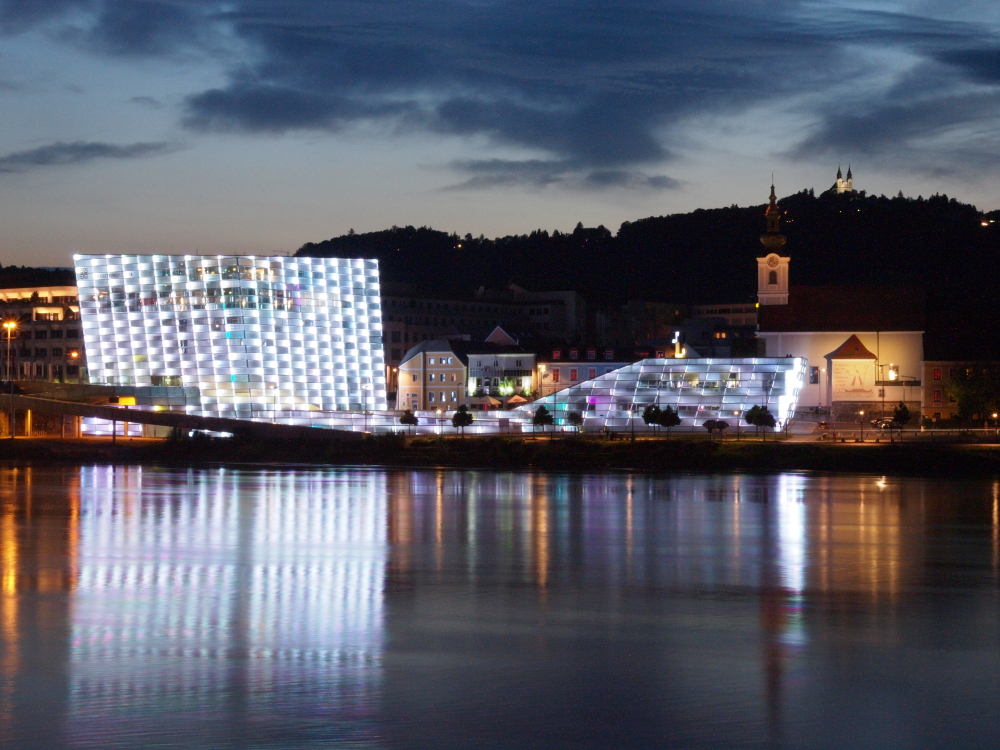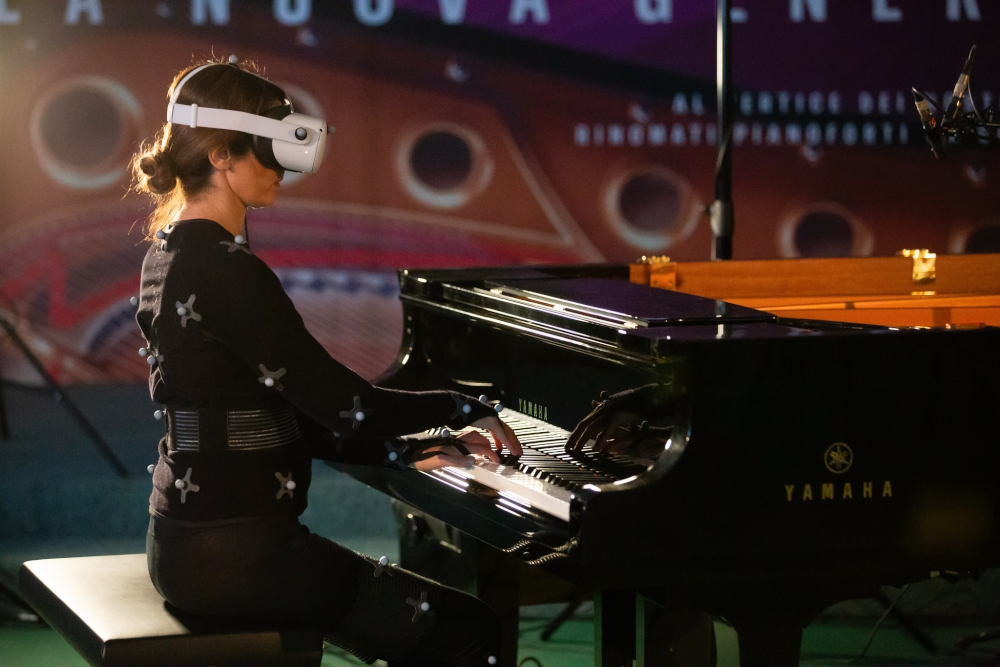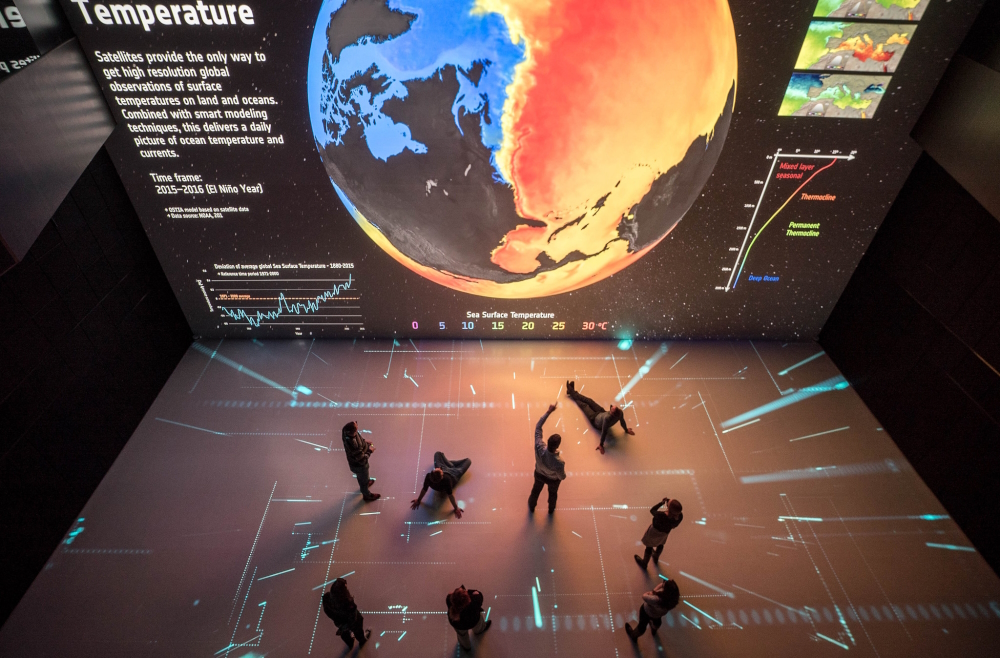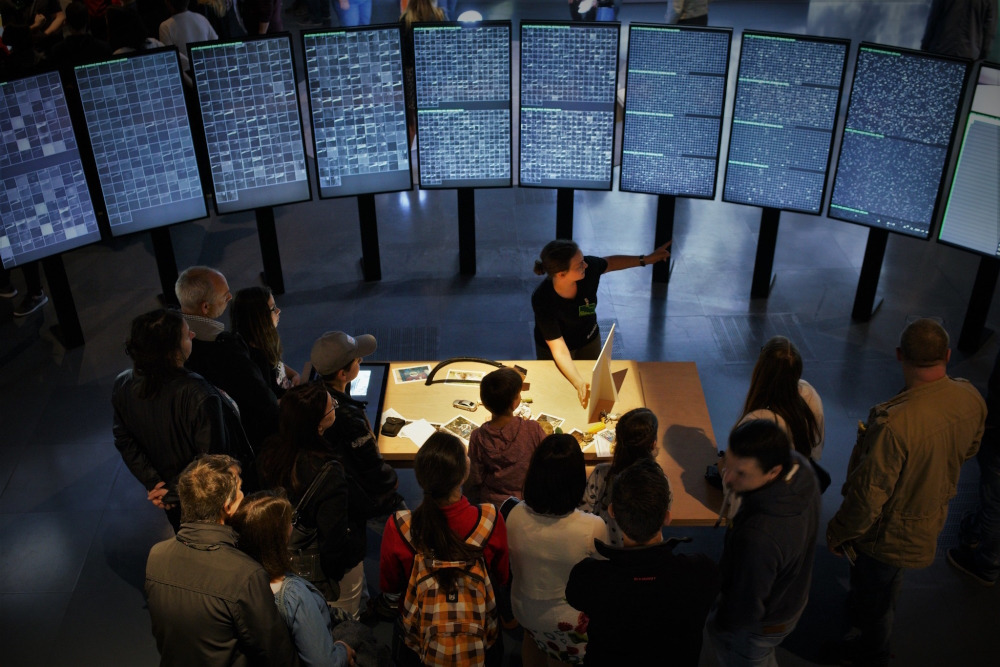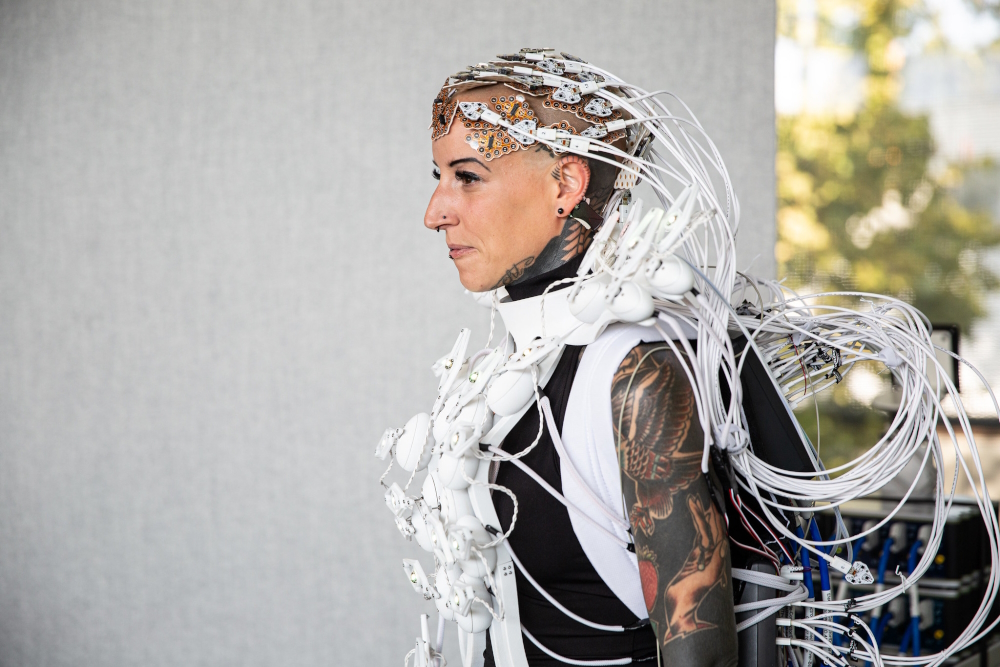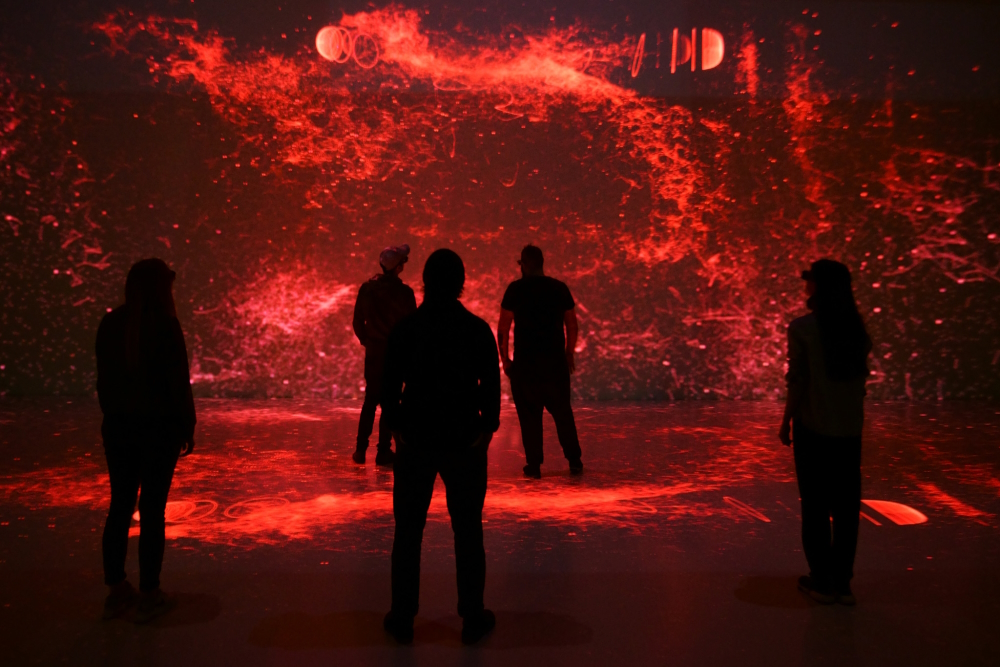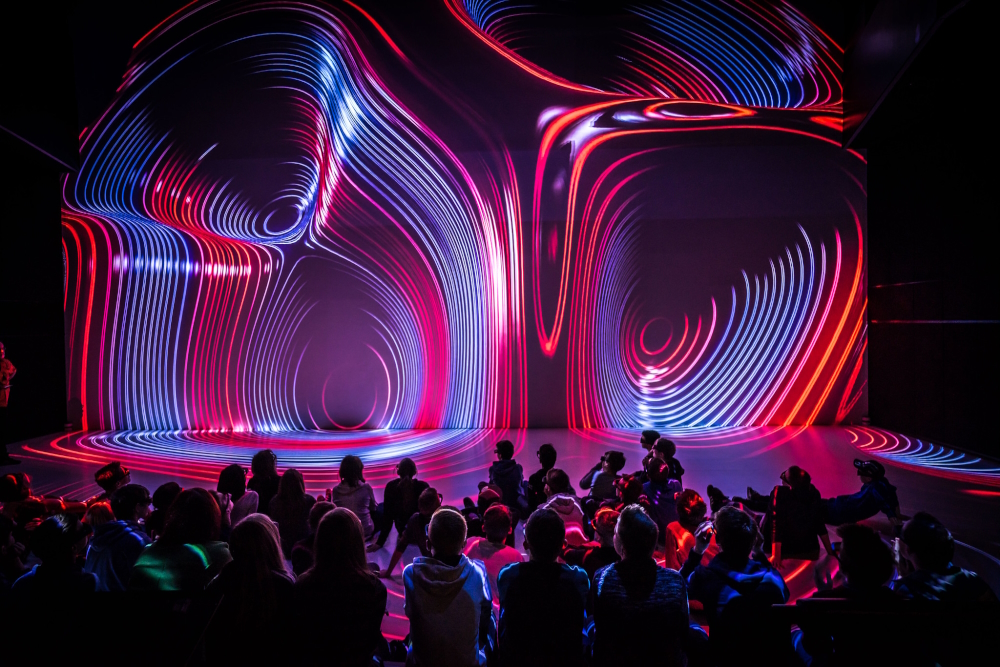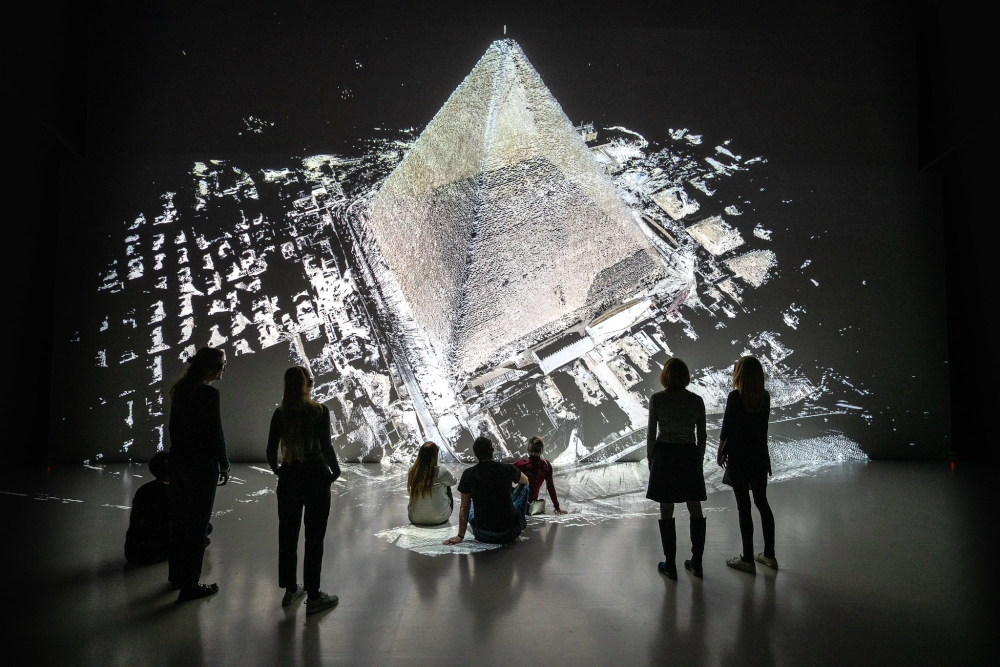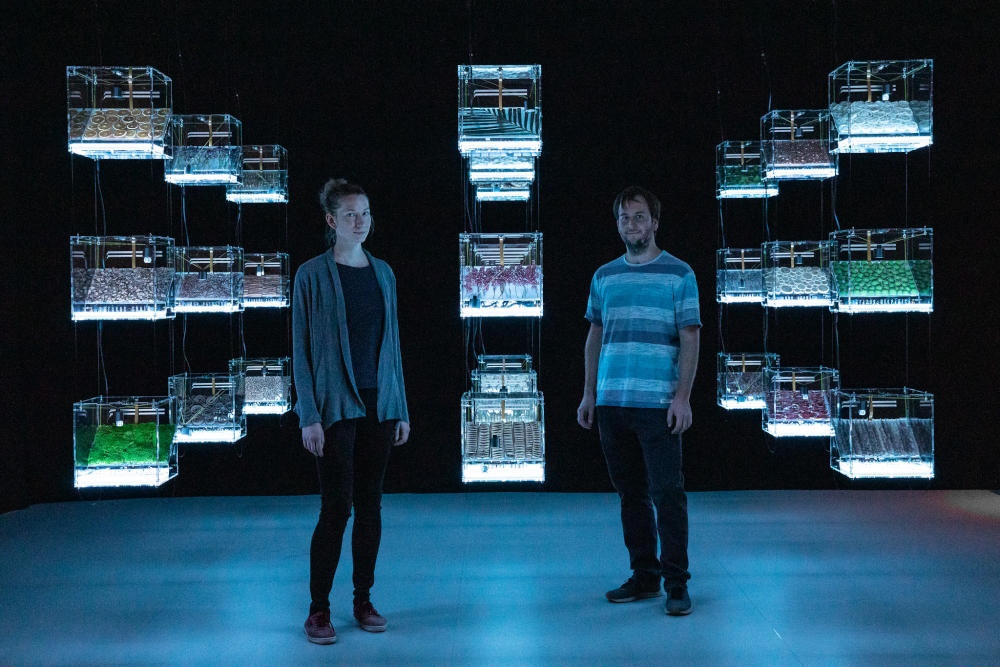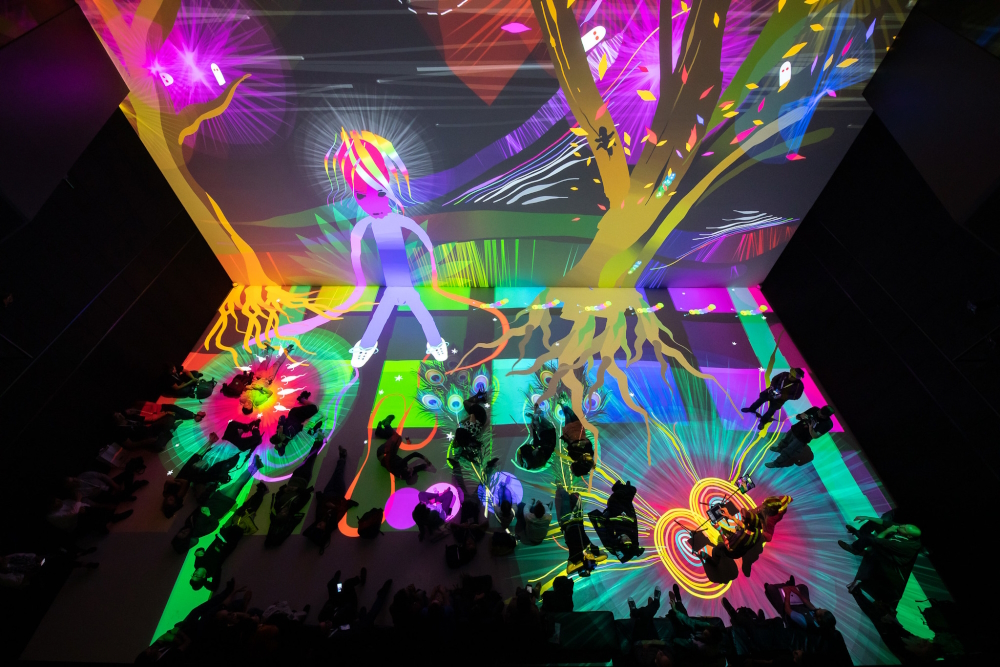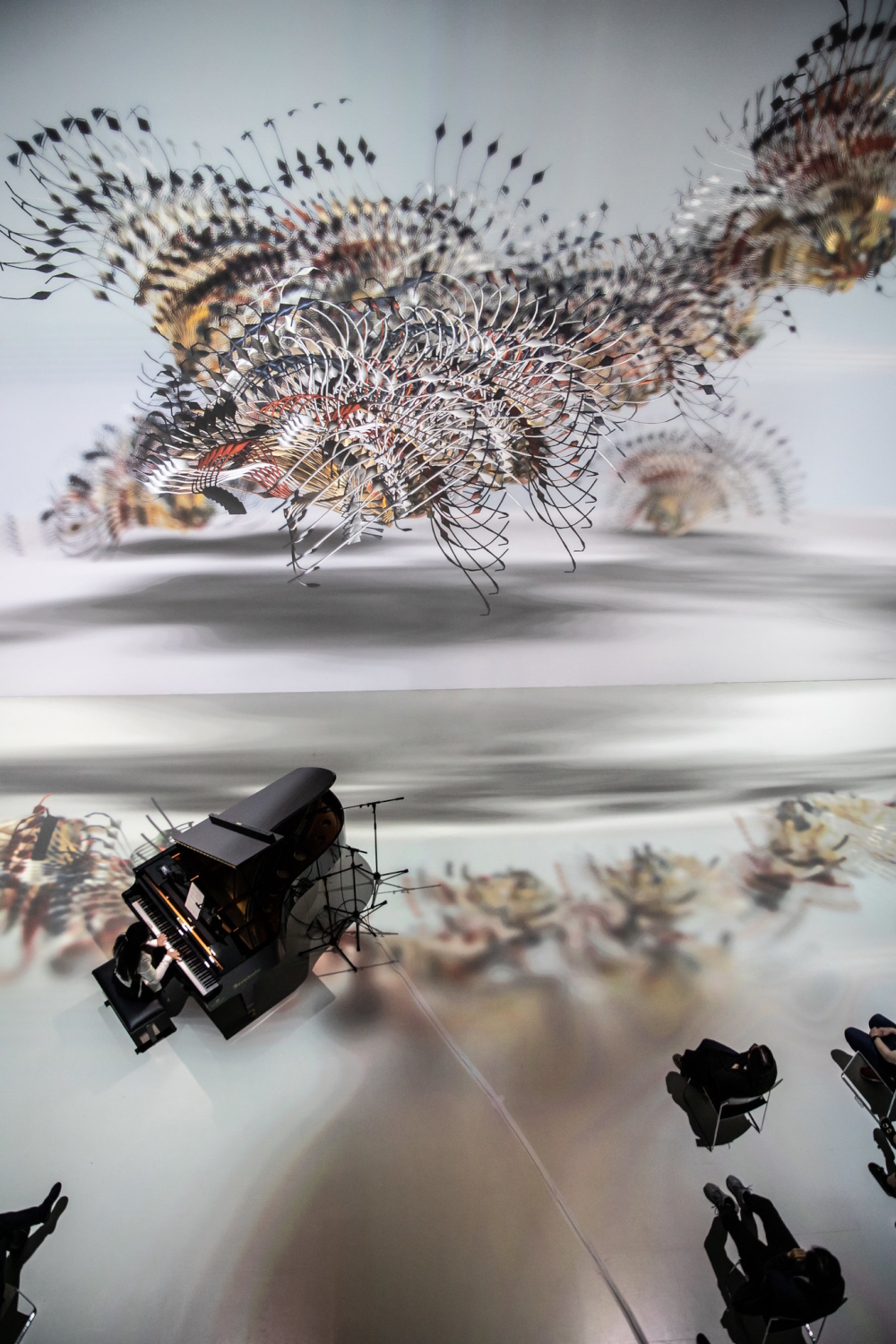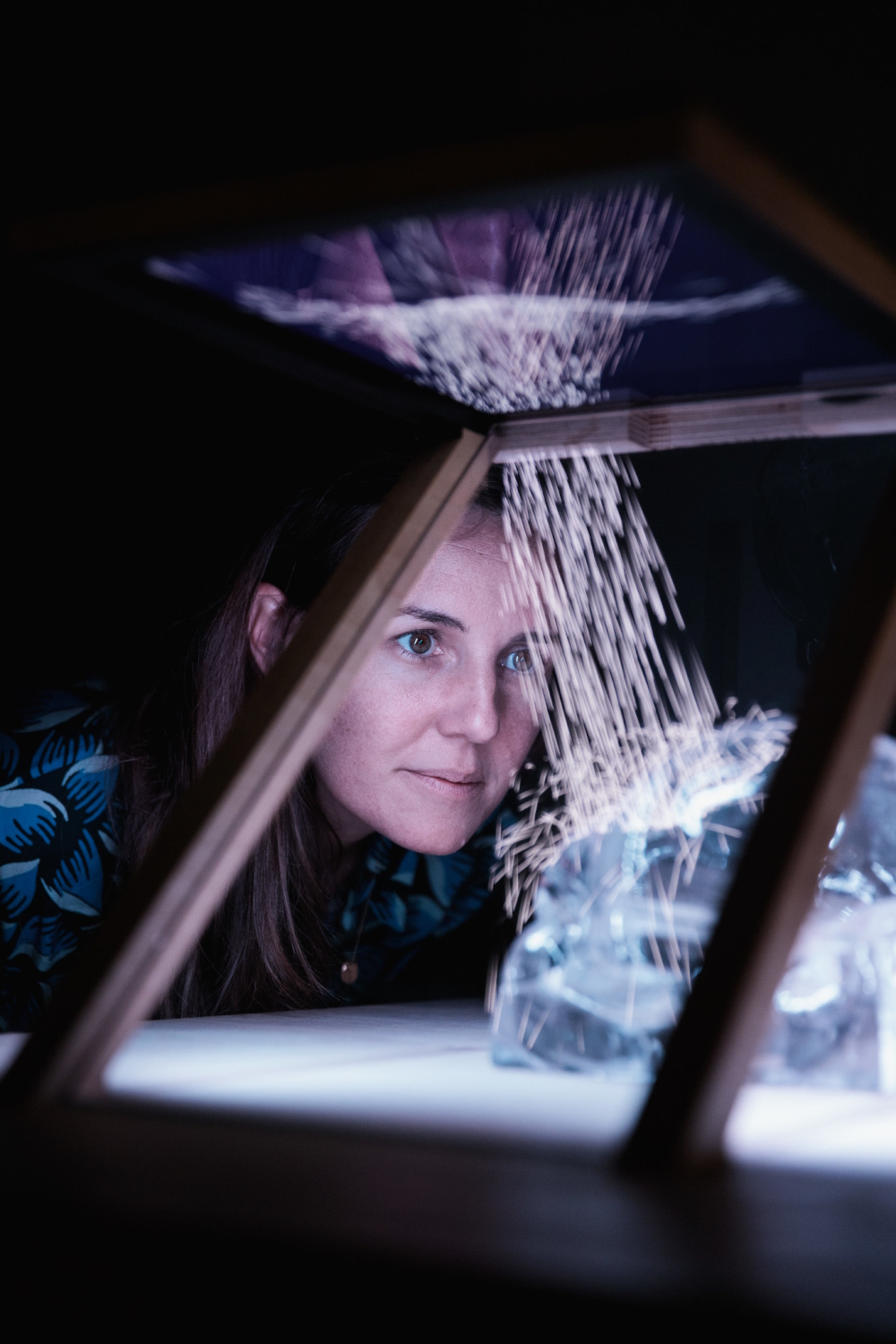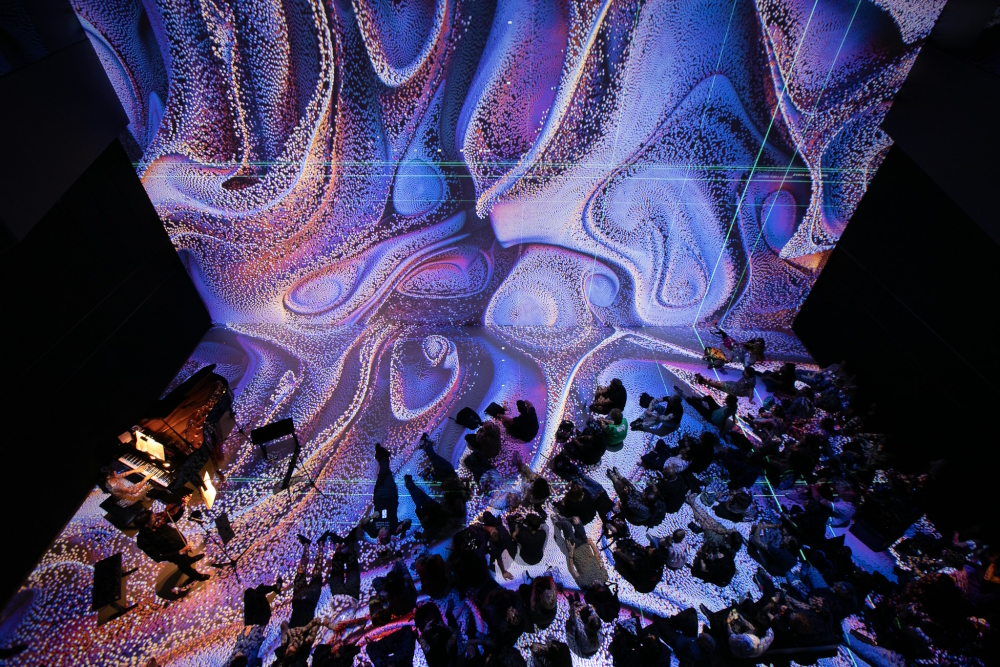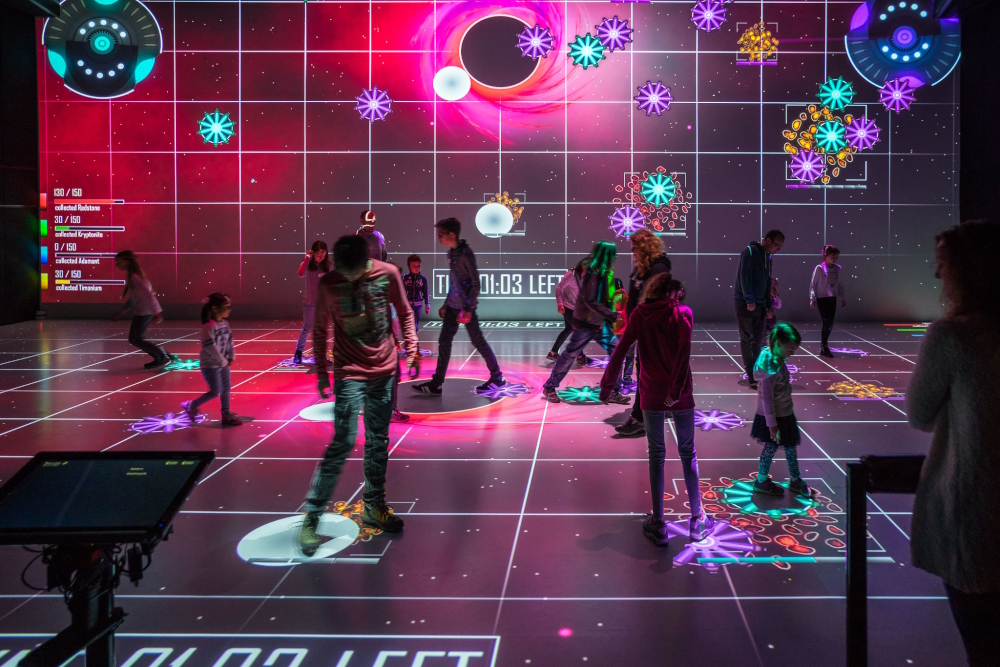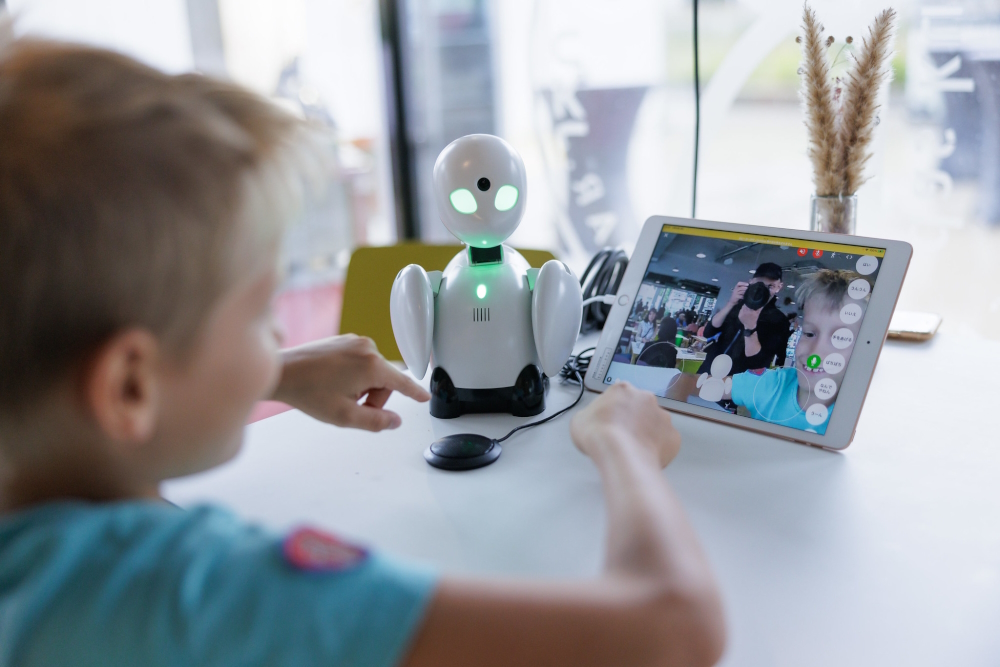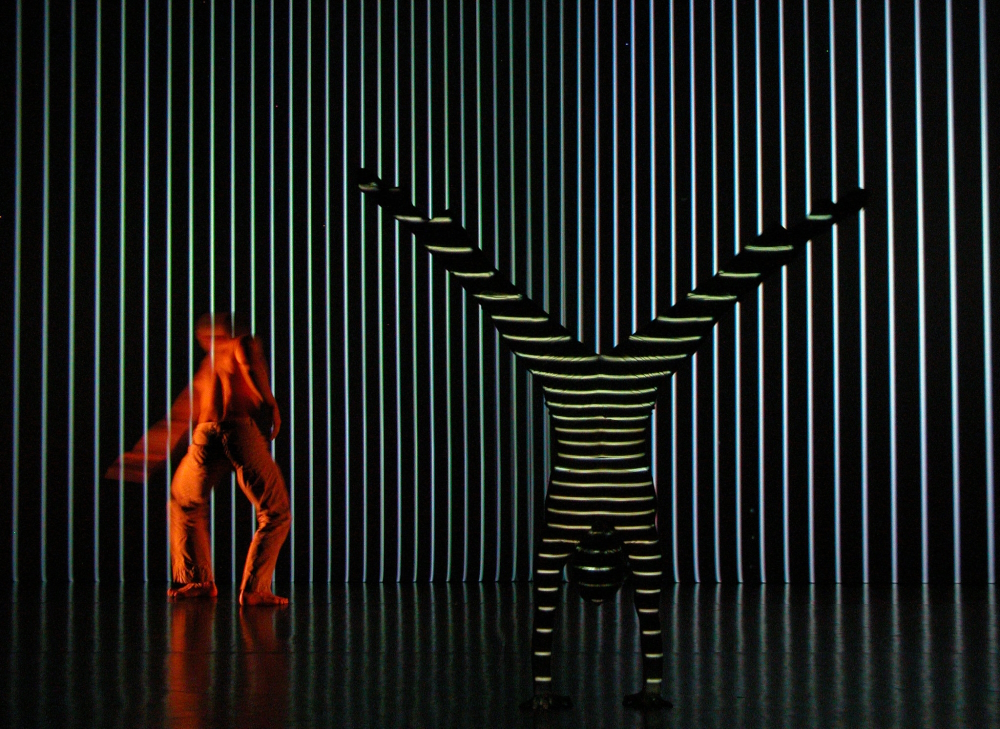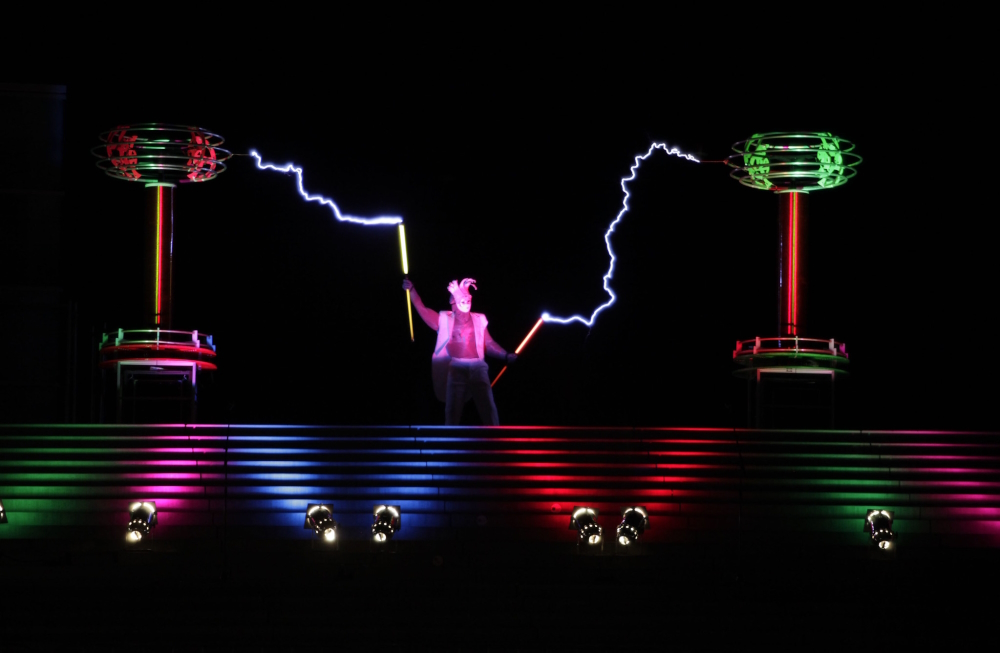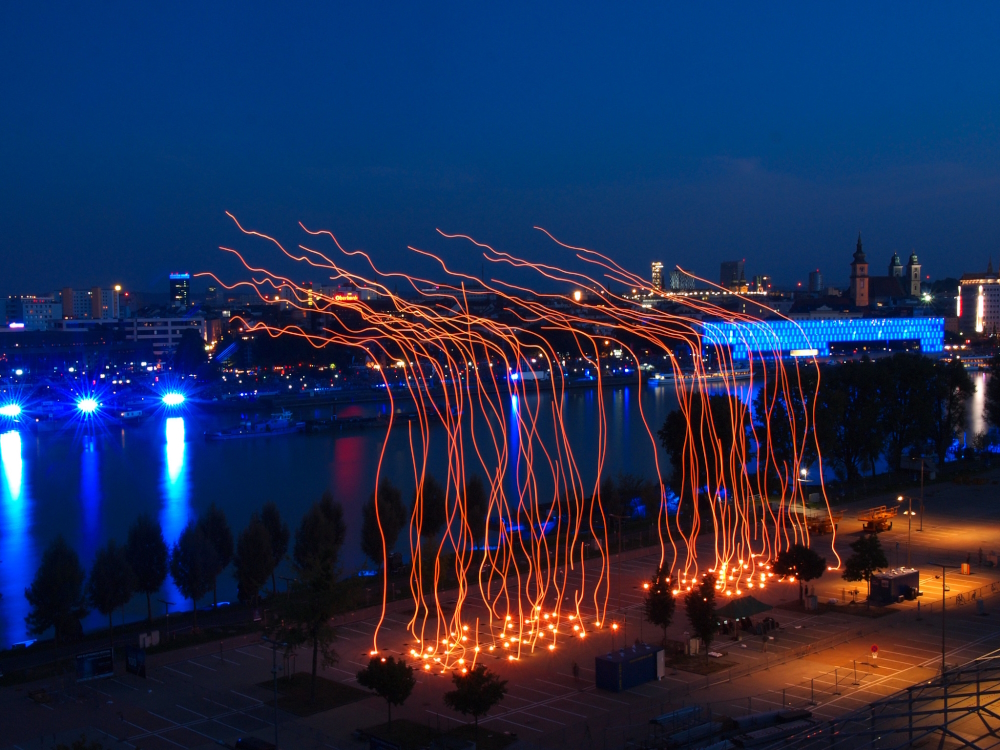Hannes Leopoldseder
Ars Electronica co-founder / vice chairman
Austria
"The most important festival of digital transformation – internationally!" This is the status of "Ars Electronica", which is held annually in Linz/Austria since 1979. "Since then, we have been developing projects, strategies and competencies for the Digital Transformation. Together with artists, scientists, technologists, designers, developers, entrepreneurs and activists from all over the world, we address the central questions of our future. The focus is on new technologies and how they change the way we live and work together" (EA's website). Trends in the various genres of the digital revolution are presented in the city at the Danube at different venues by means of artistic works that have been generated electronically. The exhibitions and concerts are accompanied by discussion forums and symposia. The event is rounded off by various cooperations with international research institutions, which will present themselves on the occasion of the series of events. One of the three founders of "Ars Electronica", the "Festival for Art, Technology and Society" (subtitle), was Professor Dr. Hannes Leopoldseder.
Hannes Leopoldseder
Ars Electronica co-founder / vice chairman
Austria
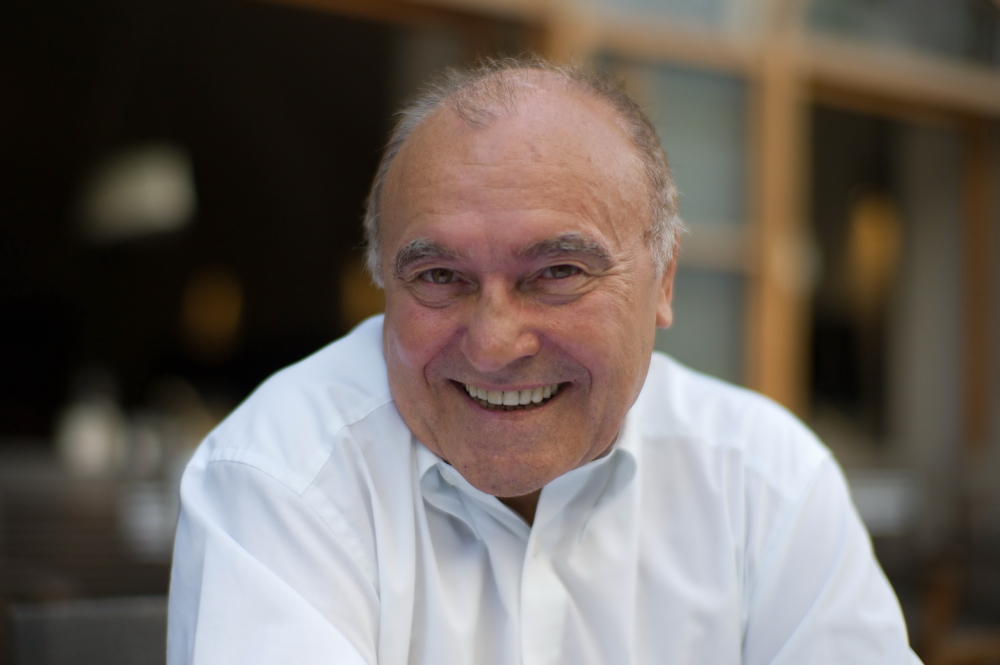
After graduating from the "Bischoefliches Gymnasium Petrinum" in Linz, he (* 27 March 1940, St. Leonhard/Austria) studied English and German at the "Universitaet Wien". His first professional activity as a lecturer was followed in 1967 by a position as editor for domestic politics at the Austrian Broadcasting Company (ORF television). From 1974 to 1998, the frequent reader (science, research, science fiction, thrillers) was director of the ORF regional studio in Upper Austria, then television director of the information division of ORF Vienna and as such responsible for information, culture, science, sport and religion on TV. From 2009 he was an honorary professor at the "University of Art" in Linz, having taken on a lectureship for audiovisual media at the University of Vienna in 1975. Hannes Leopoldseder received numerous awards in the course of his career, published various international compendia on computer art. The father of four children, who appreciated fitness training and healthy nutrition ('Paleo diet'), lived in Linz. He died there on 12 February 2021.
Interview March 2016
Controversial, but always ahead of its time: „Ars Electronica“
"Intuition and inspiration are two different, often interlocking stages of the creative process. Intuition can be traced back to the Latin word 'intuitio' (immediate perception) and has many different forms - from the flash of inspiration to inner logic, instinctive grasping and the resulting insight/decision to the familiar 'gut feeling' that can be felt physically. The German philosopher Friedrich Nietzsche defined it poetically as the 'wingbeat of the imagination'". Inspiration, on the other hand, as the word 'inspirare' (Latin for 'to breathe in') expresses, springs more from the breath, from the soul. Each of the two terms plays a specific role in the world history of religions.
For me, intuition can be compared to a shooting star. It lights up in a spontaneity. You have to grasp it in that moment, hold on to it and let it take shape. It can also be a swarm of shooting stars. 'Eureka!' (ancient Greek for 'I have found it!') is said to have been shouted by Archimedes, according to tradition, as he ran naked through the streets of Syracuse in Sicily. Earlier, while sitting in the bathtub, he had discovered the 'Archimedes Principle' - an insight that has been part of the canon of elementary physical laws ever since.
The flash of an intuitive idea hardly ever happens out of nowhere. The French chemist and microbiologist Louis Pasteur once put it this way: 'Chance only strikes a prepared mind'. This also applies to intuition. It can arise spontaneously. A flash of inspiration can strike one at any time, around the clock, at any point on earth or in the air - wherever we are.
In principle, there can be no time window for inspiration - unless it depends on tides or celestial bodies. The time window is therefore always open, but the person must be in the appropriate disposition. Certainly there are possibilities, which may be different for everyone, to put oneself in a certain intuitive, inspirational, creative general state in a certain ambience. This can be a morning walk, a dive into the lake or pool followed by a rest in a deck chair or on a mat, in the middle of the night or when suddenly waking up. Or maybe ideas actually come from something like mind-mapping, the association technique for developing and visualising a topic, or brainstorming. I don't think much of formal meetings, though. Small ideas can be born there, but big ones rarely, because they have to be new, original, surprising, viable, promising.
'Everything that one man can imagine, other men will realise', the brilliant French science fiction pioneer Jules Verne once said. This is true and represents an enormous challenge to human intuition, innovation and creativity. But where does the latter come from? Nobel Prize-winning neuroscientist Eric Kandel sees the brain as a 'creativity machine'. Heinz von Foerster, one of the fathers of constructivism, answered the question of whether there is a relationship between the brain and the computer with 'yes and no'. The biophysicist and cyberneticist justified his statement by saying "No computer is a brain, but all brains are computers". This leads to the following questions: Will computers ever become creative? So will creativity in the future by no means be a characteristic of humans alone?
I am fascinated by researchers and thinkers who formulate the radical digital transformation in concrete terms, such as with the following thesis: computers or robots will have the same creative intelligence as humans at some point in the distant future, but still in this century. The futurists Ray Kurzweil and Nick Bostrom are particular representatives of this view. The head of technical development at Google and the Swedish philosopher agree - although they formulate it differently - that humans will have to develop a kind of 'superintelligence' if they want to survive. In his highly acclaimed bestseller 'Rise of the Robots: Technology and the Threat of a Jobless Future', the American non-fiction author Martin R. Ford shocks us with the thesis that sooner or later robots and intelligent machines will be able to take over every kind of work.
Creativity means creation, because creativity derives from the Latin 'creatura' (= creature) or 'creare' (Latin for 'to create', 'to bring forth'). An idea, an inspiration, an innovation must be new, but creativity encompasses the entire range from the first flashing shooting star of an idea to the functioning product, which is not a flash in the pan but can last for years, decades or centuries!
14 points on how ideas can mature and be successfully realised
So what are the prerequisites for an idea to mature and be successfully realised? This question can be answered like this: It is a whole bundle of skills and factors as described in extensive specialist literature - among others by US economist Richard Florida, psychologist Gerd Gigerenzer, psychotherapist Rainer M. Holm-Hadulla, the aforementioned Eric Kandel, Canadian journalist Malcolm Gladwell or Sebastian Thrun, professor for artificial intelligence, robotics expert and co-founder of the research department 'Google X'. In my personal experience, the following factors were crucial for the implementation of an idea based on creativity:
- BIG IDEA (I'll get into this later).
- Right time
- Right place
- Openness
- Extensive knowledge to deepen the innovative idea
- Innovative strength
- Strong personal motivation
- Positive obsession, destroying the old and creating the new, with perseverance and staying power, defying all dissenters
- Personal strength to convince the appropriate environment
- Resources to realise the idea alone or with partners
- Timely assessment of one's own limits and the available resources
- Courage to break boundaries
- Always staying on the accelerator, always looking ahead
- and finally: to have something of the asset of the South Asian Kingdom of Bhutan: Luck
We live in the digital age, perhaps still in the digital dawn, but the pace of transformation is increasing. Everything is changing, nothing stays the same! This transformation therefore goes far beyond the first and second revolutions of the past centuries. It encompasses all areas of our lives, and with unprecedented speed of change. Even if Apple produces a physical product with the smartphone that seems to change the entire globe, as one of the causes of the global migration flows demonstrates, the majority of the big future companies à la Google, Microsoft, Facebook, Amazon et cetera are located in nowhere, but at the same time are always and everywhere present. The mantra of the ABBA song from 1980, 'The Winner Takes IT ALL', applies to these innovators. All the pioneers of these companies have obsessively pursued their goal and continue to chase it - each of them, even despite setbacks. Steve Jobs is a good example of this. The Apple co-founder kept pushing to realise his great vision.
Creativity happens or doesn't happen. With or without ritual. At any time. In any place. Sometimes, in my case, I have noticed certain situations where ideas have 'flown' to me, as it were, or I have consciously brought about situations and used them successfully. For example, for many years I did a so-called 'F.X. Mayr cure' every year. Mayr cure' - two weeks with only milk, bread rolls (chewing each bite 50 times), tea - and discovered the following: In the first few days, a kind of veil was felt to cover the brain, but on the seventh day it was as if it disappeared. Thoughts criss-crossed, not sluggishly, but furiously. In this situation, I concentrated on tasks that had to be solved professionally in the near future. For example, a complicated restructuring of the organisation, streamlining of processes or similar. Suddenly I had the solution and also the strength to implement it at lightning speed and without compromise. The important thing is to find one’s own moment of idea – be it an hour or a minute - and try to realise the idea with discipline, persistence and strength!
In my opinion, creativity is not bound to any age. In the digital age, the inventors and innovators are often still young people: Bill Gates made his first big invention as a nineteen-year-old and was already looking after the management of his 'Microsoft Corporation' a year later, Facebook founder Mark Zuckerberg was already running a company worth 1.5 billion US dollars at the age of 23 ...
Baking up old ideas is something I personally don't believe in. In all my creative innovations around 'Ars Electronica Linz', my endeavour has always been and still is to invest in the future. Since its premiere in 1979, the 'Festival for Art, Technology and Society' has been five to seven years ahead of its time in setting themes until the respective central idea penetrates beyond the specialist media into the public consciousness. Every year, therefore, 'Ars Electronica' has an extremely positive, perhaps also controversial echo in the specific specialist media, above all in the USA, England, France, Japan and China. In some European countries like Germany and Austria, however, the scepticism about technology is still clearly noticeable.
Magic "octagon of creativity
The particular components of creativity, as I have personally experienced it, I would like to present as a magic 'octagon of creativity':
1 BIG IDEA
2 Right Time
3 Right Place
4 Innovative Power
5 Positive Obsession
6 Persuasiveness
7 Resources
8 Persuasiveness
In this context, it is not maturity time but speed that is decisive for the development process. Once again, I can only refer to the 'The Winner Takes It All' mentioned earlier.
It is in the nature of things that creativity is not always fun, but often means blood, sweat and tears.
My driving force for a creative activity lies in the fun and joy of life as well as in leaving something behind after death - not just descendants, but an idea that will outlast one's life, at least a few decades. Not everyone can be Michelangelo or Leonardo da Vinci, Shakespeare or Goethe, Bach or Mozart; but the trace of earthly existence should remain visible for longer. As far as my ideas are concerned, I hope that the 'Linzer Klangwolke' (Linz Sound Cloud), which always captivates around 80,000 people in one evening, will become an annual fixture in Linz at the beginning of September for many decades to come. I also hope that in many decades to come hundreds of thousands of people from near and far will continue to visit the 'Ars Electronica Center' - that house with the basic idea of being able to inform themselves about the respective future of their lives, in an educational institute that is dedicated to the future.
To get back to the core of the issues here: I have found that experience and professionalism can hide a lack of creativity in small projects; but it does not work in large ones.
Is it worthwhile to be ahead of one's time? Yes, but then you have to put up with not being understood! Recognition sometimes fortunately follows later, when it is said: 'You have already shown, said, predicted this several years ago' and so on.
When a project based on creativity is brought to an end is different for every innovation, for every artistic or scientific work. A poet's opus is finished, at most its interpretation changes in decades or centuries. Festivals or a museum of the future like the 'Ars Electronica Center' must always reinvent themselves. The creative process is the constant challenge of everyday life!
However, success is not programmable. It occurs under certain conditions. Many artists, scientists and inventors whose works enjoy great recognition today have died impoverished. Vincent van Gogh is only one example of many.
It is important to remain open to criticism despite success. It is an incentive to examine one's own product, one's own idea, over and over again. That's why my advice is to react calmly to criticism!
There is no question that not every idea can succeed. Besides, every era has its ideas. Sometimes an idea is simply no longer fit for the future. Many creative people find it difficult to deal with this. Personally, I have no problem with it.
Whether it is possible to create something in which everything is expressed and which is also extremely successful, I doubt very much. After all, I don't believe in ultimate works. Only after decades or even centuries can we speak of ultimate works of an epoch. Because there is no ultimate work, it makes no sense to strive for it!"
MY FAVORITE WORK
"My 'Eureka!' for the founding of 'Ars Electronica', which is considered the most traditional media festival in the world, happened in 1979. At that time, Linz was looking for an idea that would give the steel city (headquarters of 'voestalpine', the steel-based international technology and industrial goods corporation) located between Vienna and Salzburg a specific cultural profile. Suggestions were provided by the computer music pioneer Hubert Bognermayr and myself as the director of the Upper Austrian regional studio of the Austrian Broadcasting Corporation (ORF). My idea was to go beyond a music symposium and focus on the future of art and technology, specifically on media and computer art. If iron and steel were identity-forming for Linz in the 20th century, this was to become art and technology in the 21st century. The result was the 'Festival for Art, Technology and Society'. In addition to Hubert Bognermayr, the conceptual team included Dr. Herbert W. Franke (professor and author of publications on art and technology, computer graphics, apparatus art, science fiction) and the music producer/publisher Ulrich Rützel, who was responsible for advertising and marketing. My goal was not a one-time event, but the start of a festival that would become an annual tradition and reach beyond the borders of Austria.
At the same time, as a television journalist, I was aware that if the festival was to last, it had to be anchored in the population. In the search for an idea, the 'Linzer Klangwolke' (Linz Cloud of Sound) was created as an opening event in collaboration with the Munich composer Walter Haupt. 100,000 people came to the symphonic open air with Bruckner's 8th Symphony, complete with light and laser installations, in Linz's Donaupark. This popularity in a city of 180,000 inhabitants convinced the politicians to continue the festival with the Klangwolke. Today, 'Ars Electronica', the 'Ars Electronica Center' and the 'Linzer Klangwolke' are among the international trademarks of Austria's third largest city. Ars Electronica' made a decisive contribution to Linz becoming European Capital of Culture in 2009.
After the founding of 'Ars Electronica' and 'Linzer Klangwolke', my next innovation was the idea for the 'Prix-Ars-Electronica' in 1987 - an international competition for artists who work with the medium of computers in the artistic field, be it in graphics, animation or music. In the meantime, the 'Prix-Ars-Electronica' comprises more than half a dozen categories and receives between 2,000 and 3,000 submissions from 100 countries worldwide every year. The prize-winners and their works and projects have become the focal point of the festival. The successful organisation by the ORF has also made a decisive contribution to the successful development of the 'Prix-Ars-Electronica'.
The guarantee for the continued existence of 'Ars Electronica' was ultimately my idea to found and build the 'Ars Electronica Centre' in 1991. The 'AEC' was opened in 1996, the 'New Ars Electronica Centre' in 2009, comprising the Centre ('Museum of the Future'), Festival, Prix, Futurelab, Export and Solutions."
